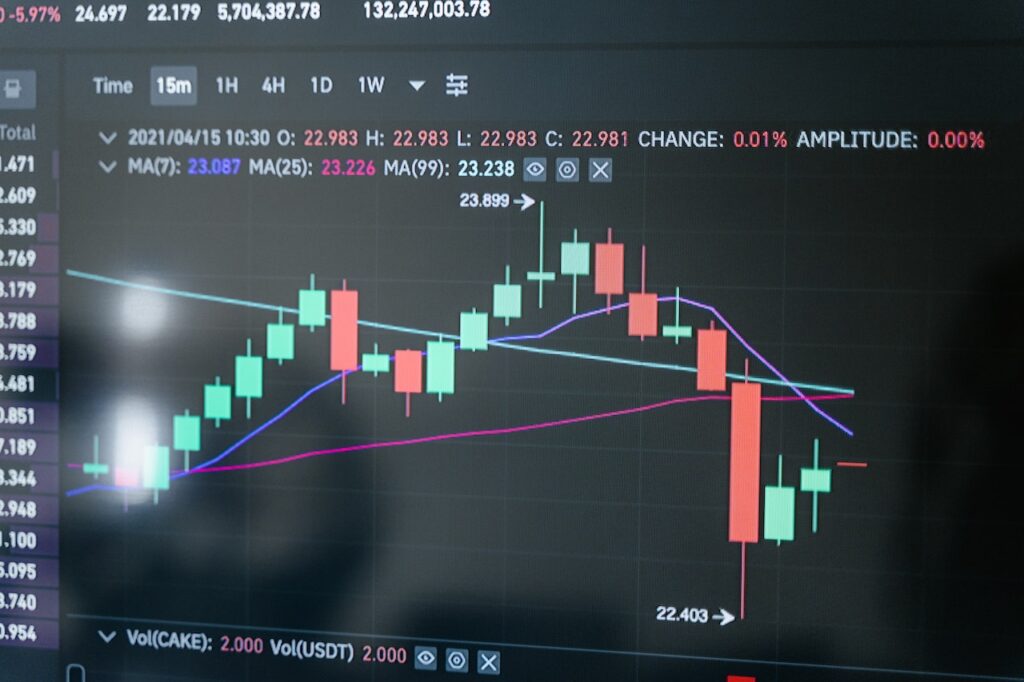As cryptocurrencies continue to gain widespread popularity and adoption around the world, governments are grappling with the challenge of regulating and taxing these digital assets. Hong Kong, a global financial hub, is no exception.
In recent years, the question of how Hong Kong treats cryptocurrency taxation has become a topic of great interest and debate. In this article, we will delve into the intricacies of Hong Kong’s crypto tax regulations and provide you with the essential information you need to navigate this evolving landscape.
Table of Contents
ToggleWhat is Hong Kong?
On China’s southern coast, there lies a thriving metropolis called Hong Kong. As a Special Administrative Region of China, it enjoys a high degree of autonomy and operates under a separate legal and economic system.
With its strategic location, robust financial industry, and business-friendly environment, Hong Kong has become a global financial hub attracting investors from around the world.
What is Crypto?
Crypto, short for cryptocurrency, refers to digital assets that use cryptographic technology to secure transactions, control the creation of new units, and verify the transfer of assets.
Cryptocurrencies, such as Bitcoin and Ethereum, have gained popularity in recent years due to their decentralized nature. The potential for high returns on investment, and the underlying technology known as the blockchain.

Current Taxation in Hong Kong
Overview of the Hong Kong Tax System
Hong Kong operates on a territorial basis for taxation, meaning that only income or profits derived from a trade, profession, or business carried out in Hong Kong are subject to Hong Kong tax.
This territorial tax system is a key advantage for businesses operating in Hong Kong, as offshore income is generally not subject to tax.
Existing Tax Laws related to Cryptocurrency
As of now, Hong Kong does not have specific tax laws that specifically address the taxation of cryptocurrencies. However, the Inland Revenue Department (IRD) has provided guidance on how cryptocurrency transactions should be treated for tax purposes.
Cryptocurrencies are considered digital assets and are generally treated as a form of investment rather than legal tender.
Crypto Tax Issues in Hong Kong
Potential Challenges and Concerns
The lack of specific tax laws related to cryptocurrencies in Hong Kong has raised concerns for both individuals and businesses involved in crypto trading.
One of the main challenges is determining the appropriate tax treatment for different types of cryptocurrency transactions, such as buying, selling, and mining. Without clear guidelines, it can be difficult for taxpayers to accurately calculate their tax liabilities.
Recent Developments and News
Despite the absence of specific crypto tax laws, the Hong Kong government has been actively monitoring the cryptocurrency market and exploring ways to regulate it.
In 2019, the government proposed a licensing regime for cryptocurrency exchanges, aiming to enhance investor protection and mitigate the risk of money laundering and terrorist financing.
Future of Crypto Tax in Hong Kong
Impact of 2023 on Taxation
The year 2023 could potentially bring new developments in the taxation of cryptocurrencies in Hong Kong. As the global cryptocurrency market continues to grow, governments around the world are increasingly focusing on regulating and taxing this emerging asset class.
Hong Kong may consider introducing specific tax laws or guidelines to provide clarity and certainty for taxpayers.
Expectations for Crypto Tax in the Future
It is expected that future crypto tax regulations in Hong Kong will address key aspects such as the classification of cryptocurrencies, tax rates for different types of transactions, and reporting requirements.
The government may also explore options for taxing crypto gains, potentially applying capital gains tax or profits tax to cryptocurrency profits.
Guidance and Regulations
Regulations for Cryptocurrency Exchanges
Cryptocurrency exchanges operating in Hong Kong are subject to certain regulations to promote transparency and prevent money laundering.
These regulations include Know Your Customer (KYC) requirements, Anti-Money Laundering (AML) policies, and reporting obligations to the relevant authorities.
Cryptocurrency AML/CFT Laws, Rules, and Regulations
Hong Kong has implemented Anti-Money Laundering and Counter-Terrorist Financing (AML/CFT) laws, rules, and regulations that apply to cryptocurrency transactions.
It is essential for crypto investors and businesses to comply with these laws to ensure the legitimacy and security of their crypto activities.
Rules and Regulations for Cryptocurrency Mining in Hong Kong
As cryptocurrency mining involves the creation and verification of new blocks on the blockchain, it is subject to specific rules and regulations in Hong Kong.
These rules may include licensing requirements, environmental regulations, and taxation on the income derived from mining activities.
Reporting Requirements for Crypto in Hong Kong
While there are currently no specific reporting requirements for crypto transactions in Hong Kong. It is recommended that crypto investors maintain accurate records of their crypto activities.
This includes records of purchases, sales, transfers, and any other relevant transactions to ensure compliance with future reporting obligations.

Frequently Asked Questions
Is there a crypto tax in Hong Kong?
As long as a person’s cryptocurrency operations are regarded as investments. There is no capital gains tax imposed on Hong Kong taxpayers. When digital assets are traded on a regular basis as part of conducting business for businesses and cryptocurrency experts, they are taxed as income.
Is crypto regulated in Hong Kong?
Hong Kong does not have specific regulations governing cryptocurrencies. But has issued guidelines and warnings about the risks associated with cryptocurrency investments.
Cryptocurrency exchanges operating in Hong Kong may be subject to regulatory requirements. Such as anti-money laundering (AML) and know-your-customer (KYC) rules, to prevent illicit activities.
How much tax will I pay on crypto?
Individuals in Hong Kong do not have to pay capital gains tax on cryptocurrency profits. However, businesses engaging in cryptocurrency-related activities may be subject to the Business Profits Tax (BPT). Which is currently set at 16.5% of their assessable profits.
The specific tax liability can vary based on the nature and scale of the crypto-related business.
Is cryptocurrency banned in Hong Kong?
Cryptocurrency is not banned in Hong Kong. It is legal to buy, sell, and hold cryptocurrencies in the region. However, there is no formal regulatory framework governing cryptocurrencies, and investors are encourage to exercise caution due to the associated risks.
Where is the crypto tax lowest?
Malta, sometimes known as the “blockchain island,” is one of the nations that welcomes the most cryptocurrency investors.
Malta does not impose a long-term capital gains tax on cryptocurrency revenues. Although it may do so on income from bitcoin trades. When determining income tax, the Maltese government takes a variety of things into account.
What are the new rules for crypto in Hong Kong?
The Securities and Futures Commission of the city has granted exchanges with its licenses the ability to accept retail investors for coin trading. Hong Kong claims that its strategy places a high priority on consumer safety and has tight guidelines about it. Which virtual assets may be purchased and sold.
How much does it cost to license crypto in Hong Kong?
Under Hong Kong’s new regulatory framework, cryptocurrency exchanges may have to pay up to $20 million for an operational license.
Conclusion
Navigating the world of Hong Kong crypto tax can be complex, especially as regulations continue to evolve.
Individual investors enjoy a tax-free status on their crypto gains, but businesses must adhere to the Business Profits Tax. Additionally, stamp duty may apply to specific share transactions related to cryptocurrency assets.




